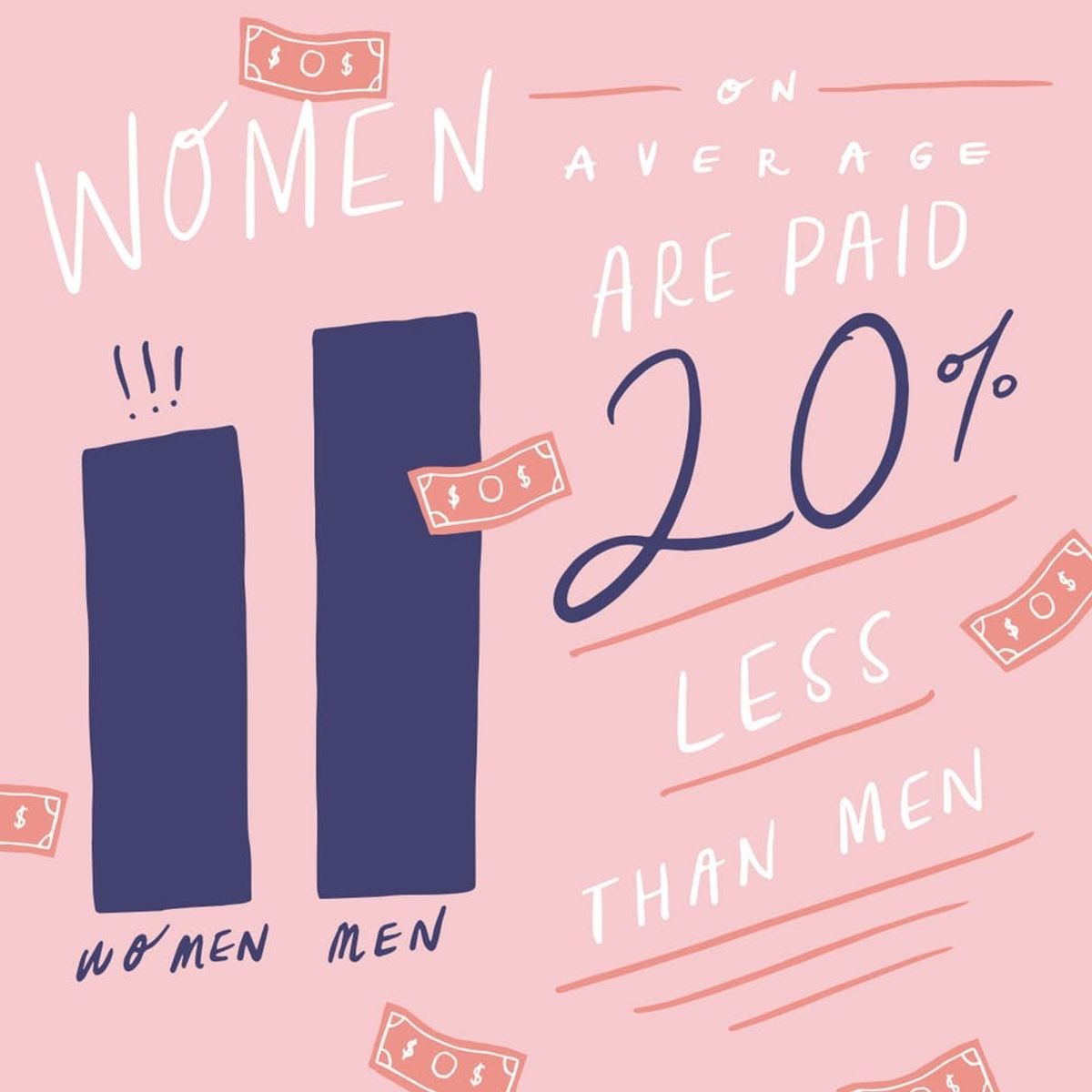Enough is enough.
Equal Pay Day: What’s Being Done to Repair the Gender Pay Gap

Equality is at the very forefront of the issues facing women today. Yet the fact remains: Women still don’t earn as much as men in the workforce. We’re as (if not better) educated, and are more competitive than ever when it comes to work experience, but are paid an average of 20 percent less. The discrepancy for Black and Hispanic women is much worse — in fact, if the gender wage gap was closed right now, the average hispanic woman would earn $100,000,000 more over the course of her working life. At one point it looked like the wage gap could be closed by 2059, but at the rate things are going now, it could be more like 2152. Oof.
Enter: Equal Pay Day. It symbolizes just how far into a year a woman would need to work to earn the same amount men earned the year before. It took until now for the average woman to make what the average man already raked in by the end of 2017. The below graphic has a few more baffling stats to take in.

On International Women’s Day in 2017, Iceland made history by announcing a law requiring companies with 25 employees or more to prove their equal pay practices. But where does the US currently fare?
President Barack Obama took a number of steps to help close the wage gap during his presidency. In 2009, the first bill he signed was the Lilly Ledbetter Fair Pay Act, enabling women who were unknowingly and unfairly paid less than their male colleagues to be additionally compensated. In 2016, he also launched the Equal Pay Pledge, encouraging businesses to not only pledge to close the gap, but to agree to conduct regular reviews of their gender pay differences. Also in 2016, on the seventh anniversary of the Lilly Ledbetter Act, Obama instated equal pay rules, requiring companies with 100 employees or more to report their their pay data by gender.
There is much, much more to be done — especially in the face of the additional obstacles faced by women of color. The American Association of University Women (AAUW) encourages you to get educated, to make your voices heard to Congress, and even learn how to better negotiate your salary, because as Brit + Co‘s own Brit Morin said last year: “Empowered women empower women.”
Do you struggle with the gender wage gap? Tell us your experience @BritandCo.
(Illustration via Marisa Kumtong/Brit+Co, photo via Mario Tama/Getty)

















